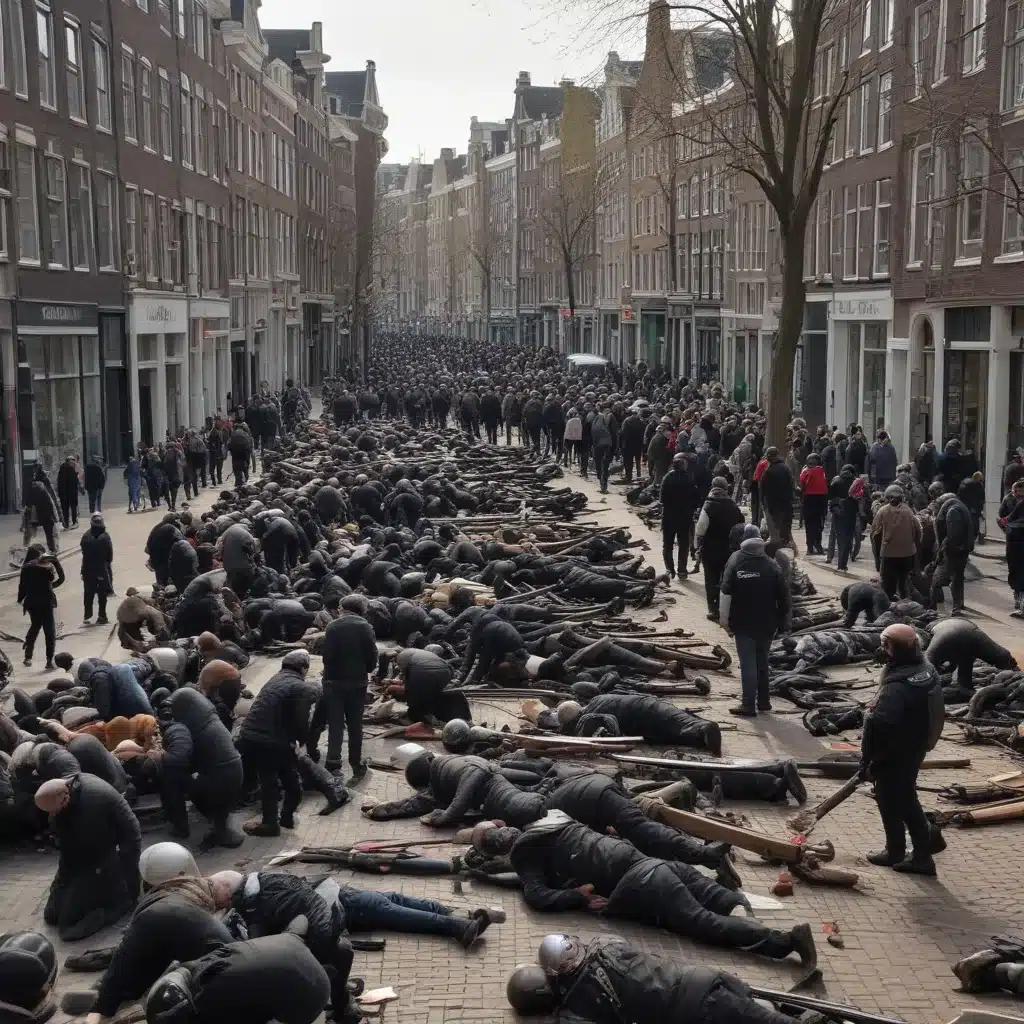
Political Factors
The unrest that erupted in Amsterdam last week, surrounding a soccer match between Maccabi Tel Aviv and Ajax, has been widely framed as a straightforward case of antisemitic violence. Israeli leaders, far-right politicians, and much of the mainstream media have been quick to deploy incendiary terms like “pogrom” to describe the attacks on Maccabi fans by locals, some of whom were waving Palestinian flags and chanting pro-Palestine slogans.
However, a closer examination of the events and the discourse that has followed reveals a more complex and troubling reality. Rather than a simple clash between Jews and Arabs, the Amsterdam incident is symptomatic of Europe’s rapidly escalating Islamophobia and the far-right’s cynical attempts to weaponize fears of antisemitism for political gain.
Underlying the unrest were longstanding tensions between the Dutch authorities and the country’s marginalized Muslim and migrant communities. In the wake of the violence, figures like Geert Wilders, the leader of the far-right Party for Freedom, have sought to capitalize on these divisions, painting Amsterdam as the “Gaza of Europe” and vowing to deport “Moroccans who want to destroy Jews.” The Dutch government, too, has responded with alarming rhetoric, considering stripping citizenship from dual nationals convicted of “antisemitism.”
These knee-jerk reactions demonstrate how “combating antisemitism” has become increasingly synonymous with upholding the power of the state and cracking down on minority groups. From France to Britain, we have seen a pattern emerge in which the fight against antisemitism is invoked to justify xenophobic, anti-immigrant agendas. In Germany, for example, new laws have been passed that cut state funding from organizations that call for boycotts against Israel, blurring the line between antisemitism and anti-Zionism.
Social Dynamics
At the heart of the Amsterdam unrest lies the marginalization of the city’s Muslim and migrant communities. These groups have long faced discrimination, surveillance, and policing, fueling deep resentment towards the authorities. The events of last week must be understood within this broader context of systemic oppression.
When Maccabi Tel Aviv fans arrived in Amsterdam, they engaged in a series of provocative actions, including tearing down Palestinian flags from apartment windows and chanting inflammatory slogans. This set the stage for the clashes that followed, as local residents, some of them waving Palestinian flags and shouting pro-Palestine slogans, attacked the visiting fans.
The response from the Dutch authorities, however, has been decidedly one-sided. Rather than addressing the underlying social tensions and the role of Maccabi fans in escalating the situation, the government has chosen to frame the unrest as a straightforward case of antisemitism. This not only serves to distract from the real issues at play but also provides a convenient justification for further cracking down on marginalized communities.
Importantly, this is not to say that the attacks on Maccabi fans were justified or that the real threat of antisemitism should be ignored. Jewish communities around the world are facing a concerning rise in hate crimes and violence, and this must be taken seriously. However, the instrumentalization of Jewish fear for political gain is deeply problematic and ultimately counterproductive to the fight against genuine antisemitism.
Misinformation Campaigns
In the aftermath of the Amsterdam unrest, a concerted effort has been made to distort and obfuscate the reality of the events. Israeli leaders, far-right politicians, and much of the mainstream media have seized upon the incident to reinforce a narrative that portrays the violence as a straightforward case of antisemitism.
This narrative serves a clear political agenda. By framing the unrest as an attack on Jews, the Israeli government can shift the focus away from the ongoing genocide in Gaza and the country’s own role in exacerbating tensions. Furthermore, the far-right in Europe can use this as a pretext to intensify their crackdown on Muslim and migrant communities, under the guise of “protecting” Jewish citizens.
The proliferation of terms like “pogrom” in the wake of the Amsterdam violence is a prime example of this weaponization of information. As scholars of antisemitism have pointed out, the use of such loaded terminology is not only inaccurate but also serves to generate mass hysteria and distract from the underlying social and political dynamics at play.
This is a common tactic in the far-right playbook: creating chaos and fear to reassert their worldview. By stoking outrage and division, they can obscure the real issues and consolidate their power. In the case of the Amsterdam unrest, the erasure of the racist violence perpetrated by Maccabi Tel Aviv fans through negligent reporting by much of the mainstream media has only accelerated this process.
Implications for the Netherlands
The fallout from the Amsterdam unrest has the potential to have far-reaching consequences for the Netherlands, both in terms of social cohesion and the country’s broader approach to policymaking.
The instrumentalization of Jewish fear and the conflation of anti-Zionism with antisemitism threaten to further exacerbate tensions between the country’s diverse communities. As the far-right continues to weaponize concerns about antisemitism to target Muslim and migrant populations, the prospects for meaningful dialogue and reconciliation become increasingly dim.
Moreover, the Dutch government’s response, with its emphasis on punitive measures and the potential stripping of citizenship, sets a troubling precedent. Such an approach is unlikely to address the underlying social and economic inequalities that fuel resentment and unrest, and may instead serve to further marginalize and alienate already vulnerable communities.
Policymakers in the Netherlands would do well to heed the lessons of the Amsterdam unrest. Rather than succumbing to the temptation of easy scapegoating and the politics of fear, they must strive to address the root causes of societal divisions, invest in community-based initiatives, and promote a vision of inclusive, equitable citizenship.
Only by adopting a holistic, nuanced understanding of the complex social dynamics at play can the Netherlands hope to navigate this volatile situation and emerge with a strengthened sense of national unity. The path forward may be challenging, but the stakes for the country’s future are too high to ignore.

